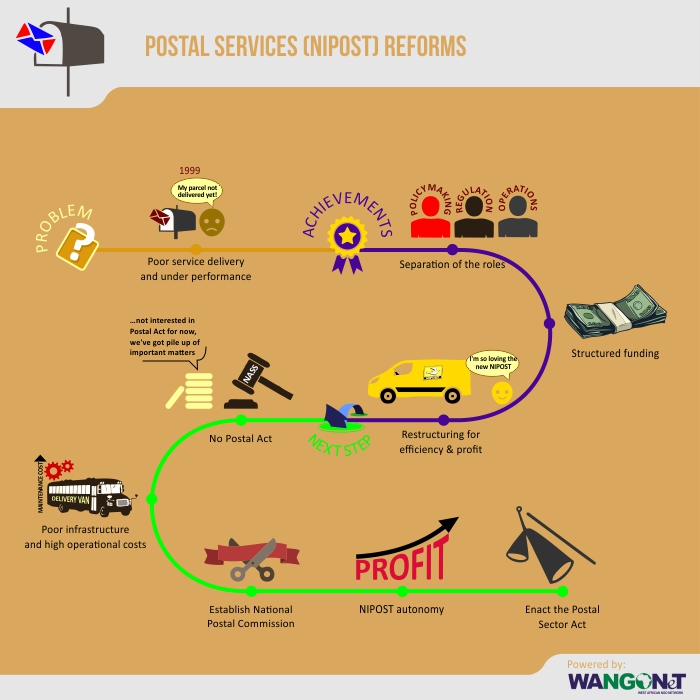Chapter 21
Postal Services (NIPOST) Reforms
Background
By 1999, the confidence of Nigerians in the country’s postal system was eroded as NIPOST could not deliver basic and core postal services of letter, parcel, and express mail delivery. Banks were easily supplanting NIPOST’s role as a mobiliser of savings at the grassroots level, as theft, loss, tampering, and violation of mail items, by a poorly motivated workforce, made many to prefer the former.
Past Reform and Achievements
The postal reforms were started by the National Council on Privatisation (NCP), through the Bureau of Public Enterprise (BPE). On 12 March 2007 the federal government engaged Nethpost Consultancy, a Netherlands consultancy firm based in the Netherlands, to provide advisory services for the reform of the sector. A Universal Postal Sector Fund and a Universal Postal Services Board were established. NIPOST was restructured along business lines for operational efficiency. It also had investments in human capital development and physical equipment. An e-Business services and creation of a virtual private network was provided for 1,500 of its post offices across the country. An International Postal System (IPS) was instituted for the tracking and tracing of all shipments.
Challenges and Next Steps
The Postal Sector Act should be enacted by the National Assembly to further drive the pace of postal reforms. A National Postal Commission for the regulation of postal services should be established, to prevent reoccurrence of the ills that once bedevilled postal services in the country. NIPOST’s infrastructure should be improved. Its monopoly on letters below 500 grammes should be removed, to increases its efficiency while competing with private postal agencies. It should either be privatised to remove government’s interference in its workings, or restructured into self-financing commercial business units.


